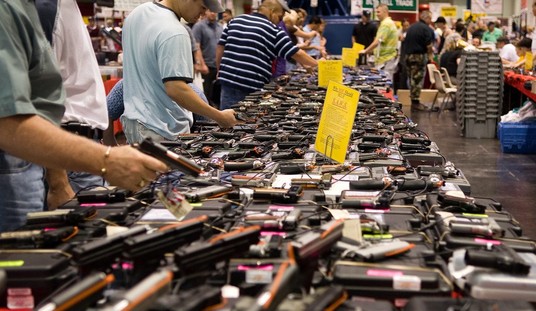News outlets like The New York Times have, to some degree, learned from their past mistakes. It used to be that any article from the mainstream media about a shooting — especially a mass shooting — would be replete with errors about firearms that anyone with a cursory knowledge of the subject would spot.
But somewhere along the line, these journalists realized they looked like fools, opining on something about which they had no knowledge. So, they acquired some. Not a lot, but just enough to make them look like they know what they’re talking about and appear objective while really demonizing firearms and the industry — particularly that evil black rifle, the AR-15.
Take for example, last week’s piece from The New York Times on the Parkland shooting.
Five of the six deadliest mass shootings of the past six years in the United States. In each of them, the gunman had an AR-15-style semiautomatic rifle.
This is hardly surprising. AR-15s are legal to own, and there are millions of them in circulation. They’re also easy to maintain and easy to learn. The New York Times continues:
The N.R.A. calls the AR-15 the most popular rifle in America. The carnage in Florida on Wednesday that left at least 17 dead seemed to confirm that the rifle and its variants have also become the weapons of choice for mass killers.
It is not hard to see why. Originally designed for troops to kill enemy fighters, the weapon became the military’s M16 and the shorter M4 carbine.
It was easily adapted for civilian use, with one major difference: Military versions can fire fully automatically — or in bursts of several shots — by depressing the trigger once. The civilian semiautomatic version requires a pull of the trigger for each shot.
So far, so good. Well, except that, really, the idea is that an intermediate cartridge like 5.56 NATO is designed to wound. A wounded trooper is more costly than a dead one, after all.
But other features that make the AR-15 so deadly on the battlefield remain. It is light, easy to hold and easy to fire, with a limited recoil. Bullets fly out of the muzzle more than twice as fast as most handgun rounds.
While The New York Times is technically correct here, it’s also being incredibly misleading. None of these features make the AR-15 particularly deadly. The bullets from virtually any rifle “fly out more than twice as fast as most handgun rounds.”
But the fear mongering doesn’t stop there.
Equally important for a gunman looking to do a lot of damage in a hurry: AR-15-style weapons are fed with box magazines that can be swapped out quickly. The standard magazine holds 30 rounds. Equipped in this way, a gunman can fire more than a hundred rounds in minutes.
The man accused of the killings in Parkland had “countless magazines” for his AR-15, the local sheriff said.
Look, these are standard-capacity magazines which are no more dangerous than a 10-rounder — which can be switched out just as quickly. They just look scary.
The New York Times then proceeds to explain how “very easy” it is to buy these scary so-called assault rifles.
And there is still one more reason the weapons are so popular in states like Florida: They are very easy to buy — and for a 19-year-old like … the shooting suspect, far easier to obtain than a handgun.
Ok, let’s start with the fact that, at 19, the shooter was federally barred from buying a handgun. So yes, buying a long gun is easier since it’s, you know, legal and all — if you pass the background check, which the shooter did.
Florida has a three-day waiting period for handgun purchases. But anyone without a felony record, domestic abuse conviction, or a handful of other exceptions — such as a commitment to a mental institution — can walk into a gun store, wait a few minutes to clear a background check, and walk out with an AR-15 -style rifle, magazines and ammunition.
And? I have an AR-15 in my safe at home; it hasn’t killed anyone yet. I know people who personally own dozens of the things each; theirs haven’t killed anyone either.
The shooter was planning his attack for weeks, if not months. A three-day waiting period on rifles likely wouldn’t have made a difference. And, as already noted, he already passed the required background check.
The AR-15 rifle used in the attack was purchased legally, at Sunrise Tactical Supply in Florida, according to a federal law enforcement official. “No laws were violated in the procurement of this weapon,” said Peter J. Forcelli, the special agent in charge for the Bureau of Alcohol, Tobacco, Firearms and Explosives in Miami.
While the shooter may have obtained the firearm legally, let’s not forget that the FBI was warned about this guy and did … nothing. But let’s be sure to mention the gun shop so it can be run out of business.
Congress explicitly banned AR-15s and other semiautomatic rifles that fit its definition of assault weapons from 1994 to 2004.
Since that law expired 14 years ago, in most states it has been just as easy to buy an AR-15-style gun as it is in Florida. (Buyers can also purchase the weapon in person or online from private sellers who are not required to perform a background check — an exemption known as the “gun show loophole.”)
Where to start? The “Assault Weapons Ban” was never effective because all it did was ban cosmetics, not function. As a result, manufacturers changed a few minor things, made their firearms compliant, and went back to work. As for the “gun show loophole,” it’s been proven time and time again to be a myth. If you sell out of state, even in a private sale, you have to ship through a federally licensed firearms dealer (FFL), which requires a background check be run on the buyer.
Only New York, California, Washington, D.C., and five other states have their own assault-weapon bans, according to the Giffords Law Center to Prevent Gun Violence.
Each of these also have some of the highest crime rates in the nation, but please, ignore the man behind the curtain.
Washington, D.C., and eight states also limit the large capacity magazines that have made many mass shootings so deadly. Even so, there have been efforts to circumvent the bans, legally and illegally, by making minor changes to the weapons.
The courts have made clear you can’t confiscate magazines that were obtained legally before a ban went in place. There are millions of standard-capacity 30 round mags in circulation. These types of bans are virtually unenforceable.
The New York Times then throws out this quote:
“These guns are much more deadly than traditional bolt-action rifles or traditional shotguns, but they are regulated the same way” in most of the country, said Adam Skaggs, chief counsel of the Giffords center.
I could go on, but this pretty much sums up what The New York Times is trying to accomplish.
This is their new tactic; obtain a little bit of firearms knowledge so they look like they know what they’re talking about, and then throw in a quote or two from pro-gun organizations so they appear “objective.”
Don’t be fooled, folks. They still hate guns and want us disarmed. They’re just shifting tactics since the old ones aren’t working anymore.








Join the conversation as a VIP Member